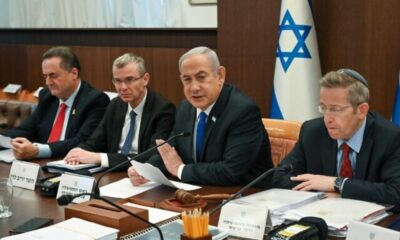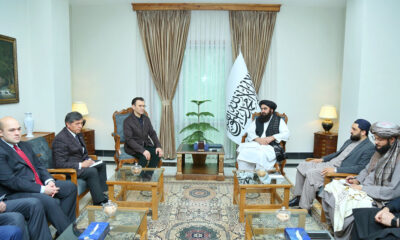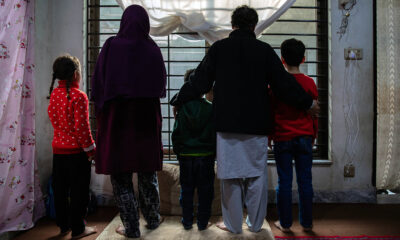Latest News
UNAMA, US and OIC among many to condemn Kabul mosque explosion
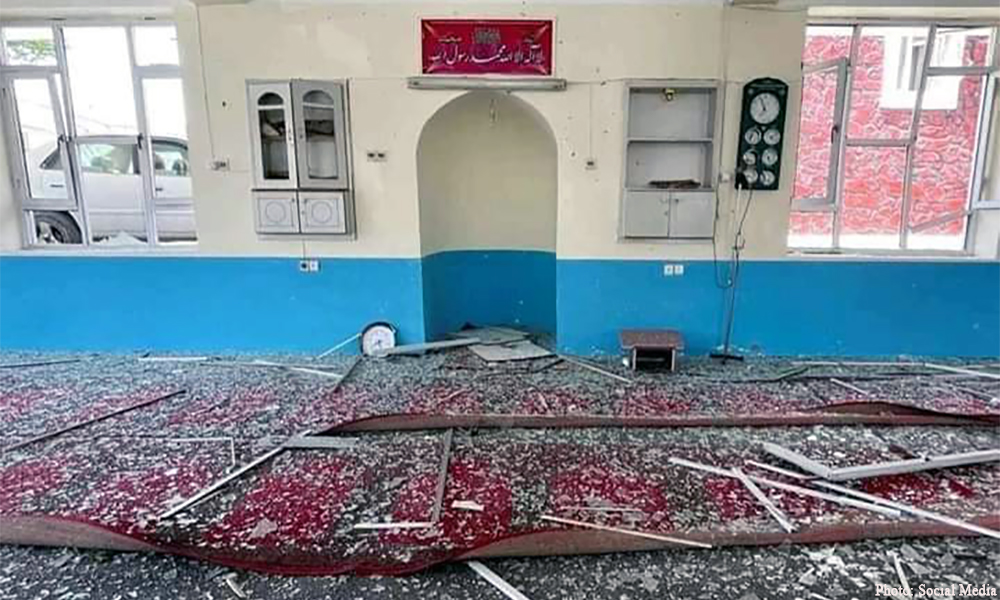
The United Nations in Afghanistan (UNAMA) has condemned Friday’s deadly attack on a mosque in Kabul, which resulted in the death of at least 10 people.
UNAMA said in a statement that the attack on the Khalifa Sahib Mosque “is the latest in a series of indiscriminate assaults on civilian targets in the capital and provinces.”
According to UNAMA, two UN staff members and their families were also in the mosque at the time of the explosion.
“Today’s attack, carried out on the last Friday of the Holy month of Ramadan and on the eve of the Eid-ul-Fitr, totally disregards human lives and religious sanctity.
“No words are strong enough to condemn this despicable act, targeting a place of worship, as Muslims across Afghanistan prepare to celebrate the Eid,” said Mette Knudsen, the UN Secretary-General’s Deputy Special Representative for Afghanistan.
“Recent attacks against civilians, targeting ethnic and religious minorities, represent a disturbing trend in Afghanistan. These violations of international humanitarian and human rights laws must end immediately,” he said.
Friday’s explosion follows a spate of attacks in recent weeks in mosques and schools in the major cities of Kabul, Kunduz and Mazar-e-Sharif.
Friday’s attack has however sparked widespread condemnation from a number of foreign countries and international communities.
US Special Representative for Afghanistan Thomas West tweeted early Saturday: “I condemn the senseless and terrible attacks against innocent Afghans this past week, including at Khalifa Sahib mosque. These attacks must end. Perpetrators must be brought to justice.”
The European Union, was among those that condemned the incident and said: “Another explosion shook Kabul, targeting worshippers during their Friday prayers and taking the lives of many. It comes in a series of heinous and coward attacks on civilians gathering in a market, school or a mosque in this holy month of Ramadan.
“The European Union mourns with the families of the victims and wishes those injured a full and speedy recovery. Terror has no place in any religion or faith,” read their statement.
The EU also called on the Afghan authorities to ensure safety and security of all Afghan citizens and to hold those responsible to account.
“It is imperative to implement effective counter-terrorism policies and measures that eradicate the threat of terrorism both inside and from Afghanistan’s territory,” their statement read.
Pakistan’s Prime Minister Mohammad Shehbaz Sharif has also strongly condemned Friday’s blast in Kabul and “expressed his deep sense of grief and sorrow at the loss of precious lives and conveyed his condolences and sympathies to the bereaved families”.
Pakistan’s ministry of foreign affairs also issued a statement and said: “We express support and solidarity to the Afghan brethren in effectively countering the challenge of terrorism.”
The General Secretariat of the Organization of Islamic Cooperation (OIC) meanwhile called for a “more resolute stand by the de facto authorities against whoever sponsors or orchestrates” the attacks.
The OIC said in a series of tweets that these repeated and indiscriminate attacks “reflect the unabated volatility of the security situation in Afghanistan”. The organization also called for a more resolute stand by the de facto authorities against whoever sponsors or orchestrates them.
Friday’s explosion was the latest in a string of attacks targeting civilians. The blast ripped through a mosque in Kabul city, leaving dozens dead and wounded. On Thursday, two more explosions were reported in Mazar-e-Sharif in Balkh province also leaving dozens dead and wounded.
Latest News
Doha process private sector meeting highlights growth and coordination in Afghanistan
The session was divided into two segments, focusing on growth and inclusion in the first part, and coordination and transparency in the second.
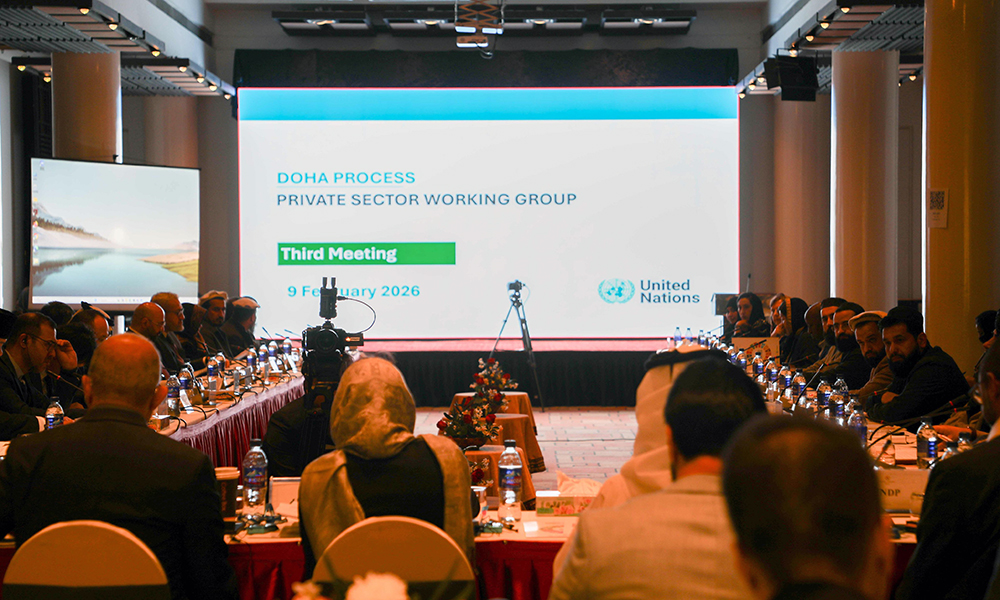
The 3rd session of the Doha Process Private Sector Working Group was held both in-person and online at Kabul’s Grand Hotel, hosted by the United Nations Assistance Mission in Afghanistan (UNAMA).
The meeting brought together representatives from the Islamic Emirate of Afghanistan, including the Ministries of Foreign Affairs, Finance, Industry and Commerce, Economy, Labor and Social Affairs, and the Central Bank, alongside UNAMA, UN agencies, international and regional organizations, as well as ambassadors, diplomats, and private sector experts.
The session was divided into two segments, focusing on growth and inclusion in the first part, and coordination and transparency in the second.
Afghanistan’s Islamic Emirate representatives shared achievements and progress since assuming governance, while participants acknowledged these efforts and highlighted their ongoing support for the private sector. All parties offered recommendations to address challenges and emphasized enhanced cooperation moving forward.
International Sports
IPL 2026: Franchise sales gather pace as global investors circle teams
Royal Challengers Bengaluru (RCB) has been put on the market by its current owner and is estimated to be worth up to $2 billion.

Developments off the field are drawing growing attention ahead of the 2026 Indian Premier League season, with two franchises — Royal Challengers Bengaluru and Rajasthan Royals — formally up for sale and attracting interest from high-profile domestic and international investors.
Royal Challengers Bengaluru (RCB), one of the league’s most recognisable teams, has been put on the market by its current owner, Diageo’s United Spirits Ltd, following a strategic review. The sale process is expected to be completed by the end of March 2026. Market estimates suggest the franchise could be valued at around $2 billion, reflecting the soaring commercial value of the IPL.
Several bidders have been shortlisted for RCB, including investment groups led by Indian industrialists, private equity firms and overseas sports owners. Among those reported to have shown interest is a consortium linked to the Glazer family, co-owners of English Premier League club Manchester United. Non-binding bids have already been submitted, with binding offers expected in the coming weeks.
Rajasthan Royals (RR), winners of the inaugural IPL title in 2008, are also in the process of being sold. A shortlist of potential buyers has been finalised, featuring a mix of Indian and international investors, including private equity firms, entrepreneurs and media-linked groups. The franchise is expected to attract a valuation of more than $1 billion, according to market estimates.
Final bids for Rajasthan Royals are anticipated in early March, while the RCB transaction is expected to move into its final phase later this month. Any change in ownership will require approval from the Board of Control for Cricket in India (BCCI).
The potential sales mark one of the most significant ownership shake-ups in IPL history and underline the league’s growing appeal as a global sports investment as preparations continue for the 2026 season.
Latest News
FM Muttaqi meets Uzbek Central Asia Institute Chief, stresses stronger bilateral cooperation
During the meeting, the two sides discussed ways to further strengthen political and economic cooperation, as well as key regional issues.
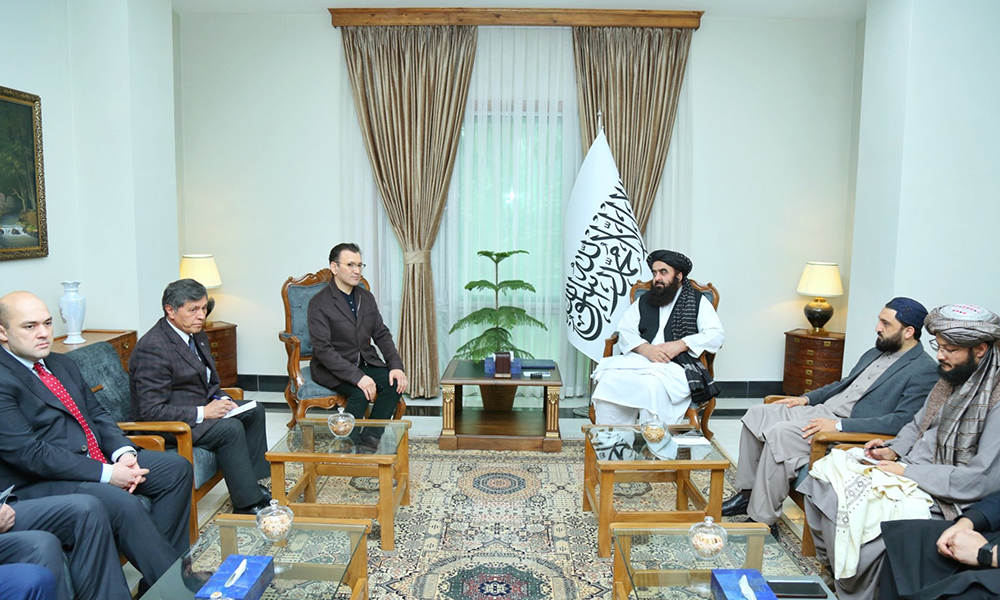
Afghanistan’s Minister of Foreign Affairs, Amir Khan Muttaqi, has met with a delegation led by Joulan Vakhabov, head of Uzbekistan’s International Institute of Central Asia and adviser to the country’s deputy president.
During the meeting, the two sides discussed ways to further strengthen political and economic cooperation, as well as key regional issues.
Muttaqi said Uzbekistan has adopted a positive and goodwill-based policy toward Afghanistan, expressing hope that bilateral relations and cooperation would continue to expand.
He also underscored the important role of research institutions in promoting mutual understanding, enhancing cooperation, and developing a realistic assessment of regional dynamics.
For his part, Vakhabov praised the progress and stability in Afghanistan and voiced optimism that trade between the two countries would increase further in the current year.
-

 Latest News3 days ago
Latest News3 days agoAfghanistan to grant one- to ten-year residency to foreign investors
-

 Sport4 days ago
Sport4 days agoIndonesia shock Japan to reach historic AFC Futsal Asian Cup final
-

 Sport5 days ago
Sport5 days agoMilano Cortina 2026 Winter Olympics: What You Need to Know
-

 Sport3 days ago
Sport3 days agoIran clinch AFC Futsal Asian Cup 2026 in penalty shootout thriller
-

 Latest News3 days ago
Latest News3 days agoAfghanistan says Pakistan is shifting blame for its own security failures
-

 International Sports2 days ago
International Sports2 days agoWinter Olympics gain momentum as medal table takes shape
-

 Latest News5 days ago
Latest News5 days agoAfghanistan facing deepening hunger crisis after US Aid Cuts: NYT reports
-
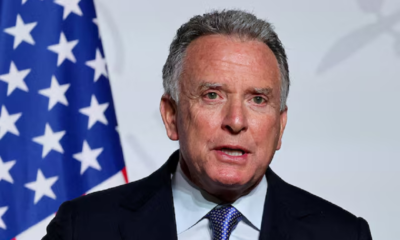
 World5 days ago
World5 days agoUS, Ukraine, Russia delegations agree to exchange 314 prisoners, says Witkoff








